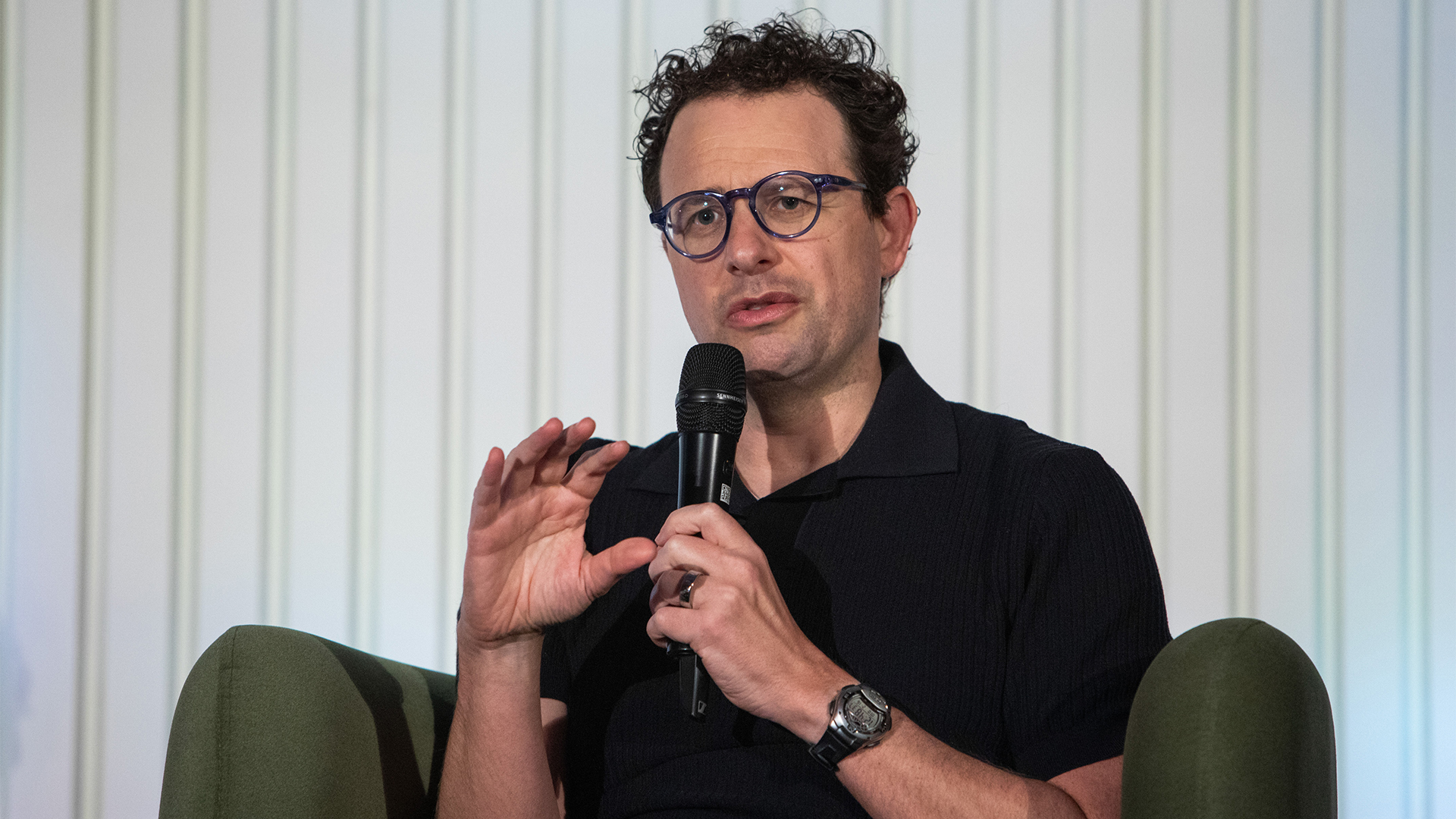AWS CEO Matt Garman just said what everyone is thinking about AI replacing software developers
Junior developers aren’t going anywhere, according to AWS CEO Matt Garman


Sign up today and you will receive a free copy of our Future Focus 2025 report - the leading guidance on AI, cybersecurity and other IT challenges as per 700+ senior executives
You are now subscribed
Your newsletter sign-up was successful
Amazon Web Service (AWS) CEO Matt Garman has issued a blunt message to enterprises thinking of replacing junior developers with AI, suggesting it’s the “dumbest thing” he’s ever heard.
Garman's comments came during a recent podcast appearance with Matthew Berman where the chief exec discussed the company’s current AI strategy and the technology’s impact on the industry.
The AWS chief’s stance on the topic follows repeated warnings that AI will disrupt white collar work across a range of industries, particularly entry-level roles where enterprises look to replace junior staff and automate processes.
Anthropic CEO Dario Amodei warned that entry-level workers are firmly in the crosshairs as a result of AI and automation, but it’s safe to say that Garman isn’t convinced.
Focusing specifically on junior developers - another area where notable concerns have been raised - Garman said they represent a vital part of a company’s long-term talent pipeline.
“That’s like, one of the dumbest things I’ve ever heard,” he said. “They’re probably the least expensive employees you have, they’re the most leaned into your AI tools.”
“How’s that going to work when ten years in the future you have no one that has learned anything,” he added.
Sign up today and you will receive a free copy of our Future Focus 2025 report - the leading guidance on AI, cybersecurity and other IT challenges as per 700+ senior executives
“My view is that you absolutely want to keep hiring kids out of college and teaching them the right ways to go build software and decompose problems and think about it, just as much as you ever have.”
Garman’s outlook on the matter echoes previous comments from industry figures on future prospects for junior developers.
Earlier this year, outgoing GitHub chief executive Thomas Dohmke said junior developers will still be vital despite claims that AI has the potential to replace them.
Once again, Dohmke’s stance centered around the fact these up-and-coming developers are “AI native” who’ve frequently used the technology during college, or even earlier at school.
AI will be a net positive for enterprises and workers
Garman suggested that AI will ultimately be a net positive for enterprises, providing they avoid reactionary moves like workforce cuts in favor of the technology.
“There’s never been a more exciting time to be in technology,” he said. “I’m on the much more optimistic side.”
A key appeal of the technology lies in taking away the “toil” that workers across a range of professions currently deal with, Garman noted. Equipping them with the technology will enable them to focus on the “things that they’re excited about”.
It’s a common talking point among proponents - and crucially, providers - of the technology over the last two years: freeing people up to do the more ‘rewarding’ aspects of their job or to focus on creative endeavors.
Few have been able to fully articulate how that will work in practice long-term, but Garman still stuck to this particular talking point.
“I think if you look at a lot of white collar jobs today, the vast majority of things that people spend their time doing is not the things that they would ever tell you they get excited about for their job,” he said.
“It’s not putting my numbers into this particular system, or pulling a report together so that I can report on the thing that I’m doing, or trying to collate a bunch of information so that I can actually understand what it is that I want to work on.
“I think people would love to spend more of their time on that creative aspect, on the driving aspect of doing interesting analysis, on doing the parts of their job that they love and not the parts that they don't.”
Ignore the AI code generation hype
AWS has observed positive signs on the appetite for AI tools internally, Garman noted. Around 80% of developers are using AI in their workflows “in some way”, he told Berman.
“Sometimes it's writing unit tests, sometimes it's helping write documentation, sometimes it's writing code,” he said. “And that number is going up every single week.”
AWS isn’t alone on this front, of course. Developers at other major industry competitors such as Microsoft and Google are even going so far as to write code using AI.
Microsoft CEO Satya Nadella recently revealed that over 25% of the company’s internal source code is AI-generated, while Google CEO Sundar Pichai boasted similar figures last year.
But Garman thinks this is a “silly metric” by which companies are measuring the success of their own internal gains with the technology.
“I think for a while, for the last year or two, people have been excited about bragging about the number of lines of code that have been written by AI,” he said. “It’s like a silly metric.”
“There might be bad code, by the way. Measuring lines of code is never actually the best metric. Oftentimes, fewer lines of code is way better than more lines, so I’m never really sure why that’s the exciting metric that people like to brag about.”
Make sure to follow ITPro on Google News to keep tabs on all our latest news, analysis, and reviews.
MORE FROM ITPRO
- Junior software developers lack coding skills because of an overreliance on AI tools
- Think AI coding tools are speeding up work? Think again
- Developers say AI can code better than most humans – but there's a catch

Ross Kelly is ITPro's News & Analysis Editor, responsible for leading the brand's news output and in-depth reporting on the latest stories from across the business technology landscape. Ross was previously a Staff Writer, during which time he developed a keen interest in cyber security, business leadership, and emerging technologies.
He graduated from Edinburgh Napier University in 2016 with a BA (Hons) in Journalism, and joined ITPro in 2022 after four years working in technology conference research.
For news pitches, you can contact Ross at ross.kelly@futurenet.com, or on Twitter and LinkedIn.
-
 Cyber experts issue warning over new phishing kit that proxies real login pages
Cyber experts issue warning over new phishing kit that proxies real login pagesNews The Starkiller package offers monthly framework updates and documentation, meaning no technical ability is needed
-
 Microsoft hails advances in glass data storage
Microsoft hails advances in glass data storageNews Project Silica uses lasers to encode data into borosilicate glass, where it stays stable for thousands of years
-
 ‘AI is making us able to develop software at the speed of light’: Mistral CEO Arthur Mensch thinks 50% of SaaS solutions could be supplanted by AI
‘AI is making us able to develop software at the speed of light’: Mistral CEO Arthur Mensch thinks 50% of SaaS solutions could be supplanted by AINews Mensch’s comments come amidst rising concerns about the impact of AI on traditional software
-
 Claude Code creator Boris Cherny says software engineers are 'more important than ever’ as AI transforms the profession – but Anthropic CEO Dario Amodei still thinks full automation is coming
Claude Code creator Boris Cherny says software engineers are 'more important than ever’ as AI transforms the profession – but Anthropic CEO Dario Amodei still thinks full automation is comingNews There’s still plenty of room for software engineers in the age of AI, at least for now
-
 AWS CEO Matt Garman isn’t convinced AI spells doom for the software industry – but admits providers will “have to innovate” to stay afloat
AWS CEO Matt Garman isn’t convinced AI spells doom for the software industry – but admits providers will “have to innovate” to stay afloatNews Software stocks have taken a beating in recent weeks, but AWS CEO Matt Garman has joined Nvidia's Jensen Huang and Databricks CEO Ali Ghodsi in pouring cold water on the AI-fueled hysteria.
-
 Anthropic Labs chief Mike Krieger claims Claude is essentially writing itself – and it validates a bold prediction by CEO Dario Amodei
Anthropic Labs chief Mike Krieger claims Claude is essentially writing itself – and it validates a bold prediction by CEO Dario AmodeiNews Internal teams at Anthropic are supercharging production and shoring up code security with Claude, claims executive
-
 AI-generated code is fast becoming the biggest enterprise security risk as teams struggle with the ‘illusion of correctness’
AI-generated code is fast becoming the biggest enterprise security risk as teams struggle with the ‘illusion of correctness’News Security teams are scrambling to catch AI-generated flaws that appear correct before disaster strikes
-
 ‘Not a shortcut to competence’: Anthropic researchers say AI tools are improving developer productivity – but the technology could ‘inhibit skills formation’
‘Not a shortcut to competence’: Anthropic researchers say AI tools are improving developer productivity – but the technology could ‘inhibit skills formation’News A research paper from Anthropic suggests we need to be careful deploying AI to avoid losing critical skills
-
 A torrent of AI slop submissions forced an open source project to scrap its bug bounty program – maintainer claims they’re removing the “incentive for people to submit crap”
A torrent of AI slop submissions forced an open source project to scrap its bug bounty program – maintainer claims they’re removing the “incentive for people to submit crap”News Curl isn’t the only open source project inundated with AI slop submissions
-
 ‘This is a platform shift’: Jensen Huang says the traditional computing stack will never look the same because of AI – ChatGPT and Claude will forge a new generation of applications
‘This is a platform shift’: Jensen Huang says the traditional computing stack will never look the same because of AI – ChatGPT and Claude will forge a new generation of applicationsNews The Nvidia chief says new applications will be built “on top of ChatGPT” as the technology redefines software